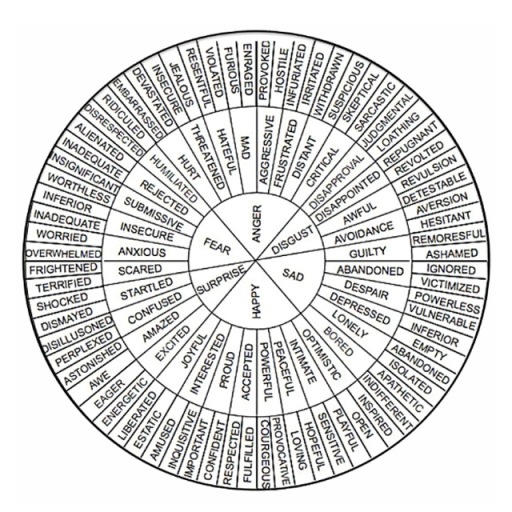
Greetings!
Interesting class on the 23rd, methinks!
After starting with a quick reading of the coach’s notes, we started class with a couple rounds of Ninja, which I first learned about in the Spolin classes I took back in the day, but discovered that many of you knew the game yourselves from other sources. Which is cool, of course. The focus of the Ninja Game is observation and spontaneity.
I tried to introduce the concept of Accent Night, saying that for the evening, everyone should interact in class attempting a New York accent – even if it’s a lousy one. Actually, especially if it’s a lousy one! We won’t get better at doing accents if we don’t try – they’re not only fun to do, but if you get good at one, it looks good on the ol’ resume. I’d love to make the classroom a fun, safe place to experiment with accents, limps, quirky physical things, etc. Unfortunately, the novelty wore off quickly. I’ll keep trying, though. Maybe next week, it’ll be Southern Accent Night!
We segued quickly into monologue work. After performing a quick piece from The Matrix (1999 dir. Wachowskis) myself as a demonstration, we paired off and practiced our monologues with each other, trying to be as casual and connected as possible. With everyone working at the same time, it (hopefully) killed the undercurrent of “performance” and encouraged you all toward naturally taking someone else’s words and presenting them as yourself, as though you are already the character.
In case you’d like to see the Agent Smith monologue, here it is [starting at the 1:50 mark]…
Now, am I saying that the way I performed the text in class is as good as Hugo Weaving’s performance here? Not in the least. The focus of the work, at this point, is to ingest another persons’ words and deliver them as yourself, which is what I tried to do. Weaving’s performance is based on a combination of his natural talents, choices made based on the script, and, I’m sure, a ton of detailed direction from the Wachowskis. I wasn’t trying to mimic his work (though I love doing so – he’s fun to impersonate!).

At some point during this work, I passed out card-stock copies of an Emotion Wheel, for your personal use.
This is a handy resource to have as you work with your monologues… and any monologues in the future. Monologues are wonderful craft tools – I think they’re maligned, in general. They may not be used in auditions much anymore, but really, once you memorize the text, there’s no end to the ways you can play with a monologue. Pick an emotion, layer it into the monologue and see how it changes. Then try another. Then try starting the piece with one emotion, and segue into another… and a third! Mix in an accent, or a limp. Put on a hat, and see how it affects the performance! Not everything will work, but man, is it fun to try! Don’t just lock yourself into one way of performing a monologue. Experiment, and grow.
As an example of a “one-note emotion” applied to a monologue, we watched Emma Stone’s monologue from Birdman (2014 dir. A. Innaritu), where she blasted her father with frustrated rage. [Warning, some language]
Wow. If you haven’t tried performing that all-out anger yet, it is very cathartic – provided you know the text inside-out (so you don’t get stuck in your head trying to recall the lines, thus killing the vibe), and can give yourself to the emotion. Birdman is a masterpiece – if you haven’t seen it yet, track it down and buckle up.
During our monologue work, we saw Kent crank his Theoden monologue from LOTR up to an “Emma Stone 11” and cut loose. It was a joy to watch!
We also watched a wonderful clip from In Bruges (2008, dir. M. McDonagh), where the magnificent Brendan Gleesen performed an amazing 6:30 one-take tour-de-force of a monologue (basically), in the motel room phonecall scene. What a stunning emotional journey he goes on – watch his incredibly-expressive face and body. And that’s all in one take. Unreal. Out of context, the scene is impressive. If you’ve seen the whole film, it’s doubly so.
Although we did watch this at the very end of class, I’m putting it here in the blog post, to keep the clips together. Continuity!
[Again, warning: language!].
Hopefully, the clip will begin as I intended, at the 36:48 mark – if it doesn’t, either skip ahead to that mark, or settle in and watch the whole film. It is one of my very favorites. Martin McDonagh is a fantastic Irish playwright, who has since expanded into film. In Bruges was his first feature film attempt (which he knocked out of the park), but he has since done others, including Seven Psychopaths and Three Billboards Outside Ebbing Missouri (which received 7 Academy Award nominations earlier this year).
We spent a good long time working on your monologues in class. As is to be expected, there’s a bit of a learning curve, as I get a sense for where each of you are at in your development, and experiment with little adjustments and things to try, so you can each improve in a way that best fits you. I’ll invariably try different things with each of you – that’s my call, please don’t interpret that as you not quite cutting it. We’re growing together, and you all have crazy-good talent. But we’re all different, keep that in mind.
I sent you home with instructions to start experimenting with your emotion wheels. Have fun with those monologues! And by all means, if you want to switch to another, feel free! The more the merrier. At one point, I believe my record was 21 monologues I could perform at the drop of a hat. I would cycle through them as I drove to and from work, etc. trying accents and emotions in various combination, for no reason other than I enjoy it.
By the time we were done with the monologue work, the time had gotten away from me. I didn’t have time to do the cold read audition work justice – I didn’t want to try to race through it. So I bumped it to our next class (5/30/2018) and instead, I handed out the scenes from Gilmore Girls.
But to whet your appetite for next week’s audition activity, I played a video of Kevin Spacey talking about the audition process, in a way that I believe whole-heartedly.
Setting aside your personal feelings for the accusations against him as a person, don’t let that harden you against what he says here. It’s a very useful approach to take to the audition process. In fact, the entire video is worth watching.
On the topic of Taking the Long View, Kent asked a great question about the possibility of this approach backfiring, and actually creating more anxiety. It certainly is a valid question, and sparked a little bit of conversation among the class, which I enjoyed. I fall back on my experience, from the perspective of being on both sides of auditions over the past few years. When I’m auditioning, I approach it exactly as Spacey relays. You’ll have to defer to your own comfort levels and give it your best.
The class ended with about 20 minutes of familiarizing yourselves with the Gilmore Girls scenes, and then a couple more rounds of Ninja.
—————————————-
SNEAK PEEK for 5/30 class
- Cold Read Audition and Discussion
- Stanislavksi, Bertolt Brecht and the formation of the Group Theater
- Gilmore Girls scene-work (which we’ll take out of the classroom to work on and film)
- Monologue work (if time permits) If you have any questions or suggestions, let me know!
See you on the 30th!
Dave Wagner
AWS Staff
